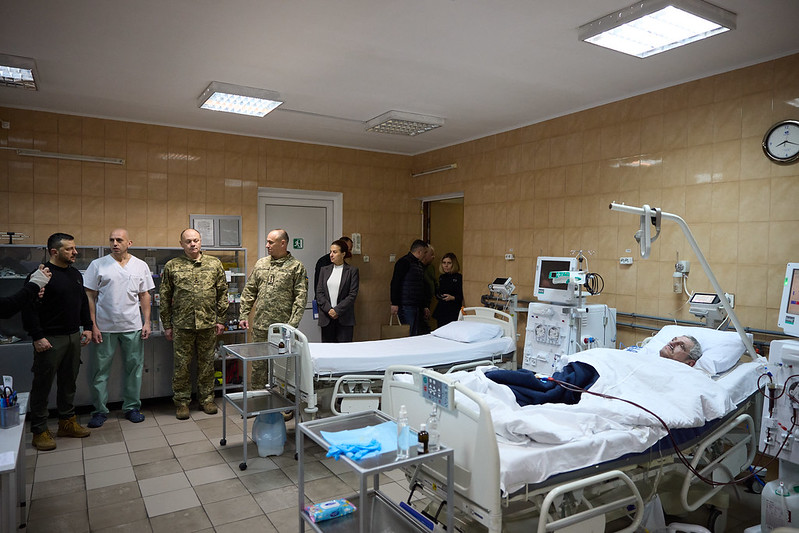
A report today in Morbidity and Mortality Weekly Reports highlights rising concern about the spread of multidrug-resistant (MDR) organisms linked to the ongoing war in Ukraine.
To assess the prevalence of antimicrobial-resistant (AMR) infections in Ukrainian hospitals, the Center for Public Health of Ukraine (UPHC) and regional collaborators conducted healthcare-associated infection (HAI) and AMR point-prevalence surveys at three hospitals in the Ternopil, Khmelnytskyi, and Vinnytsia regions of Ukraine in November and December 2022. Among the 353 patients on surveyed wards, 50 (14%) had HAIs and 30 of the 50 (60%) had an infection with a carbapenem-resistant organism. Of the 20 Klebsiella pneumoniae isolates tested, 19 were carbapenem-resistant and all were resistant to third-generation cephalosporins.
"These rates are substantially higher than those reported from a 2016–2017 European Union–wide point prevalence survey, which included more than 300,000 acute care hospital patients and 100,000 long-term care facility residents," the study authors wrote. That survey found a 5.5% HAI rate, with a 6.2% carbapenem-resistance rate among a subset of infections caused by Klebsiella and other members of the Enterobacteriaceae family.
Inadequate lab capacity
While the rise in MDR organisms in Ukraine has been attributed in part to high pre-war AMR rates and an increase in traumatic war wounds, UPHC's assessment of infection prevention and control (IPC) capacity at the three hospitals found inadequate implementation of IPC measures such as hand hygiene and inadequate HAI surveillance. Assessment of AMR laboratory capacity revealed suboptimal laboratory quality, inadequate quantities of automated microbiology equipment, and staffing shortages.
Urgent capacity building to prevent, detect, and respond to antimicrobial resistance is needed to save lives within Ukraine and limit international spread.
The authors note that UPHC is collaborating with local and international partners to strengthen IPC measures and laboratory capacity at hospitals in the three regions but will need ongoing support to scale those efforts nationally. In August, the World Health Organization announced the donation of AMR surveillance equipment to labs in regions close to the frontline.
"Urgent capacity building to prevent, detect, and respond to antimicrobial resistance is needed to save lives within Ukraine and limit international spread," the authors wrote.
















